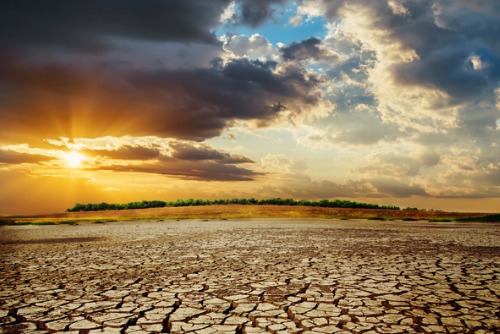

Talk of climate change has been on everyone’s lips this week after teen activist Greta Thunberg delivered an impassioned speech at the UN Climate Action Summit, calling on businesses and governments to change their approach to the environment – without delay.
Unsurprisingly, it’s a message which is also being mirrored closer to home, as climate change-related disasters ravage Australia with increasing frequency.
According to the Bureau of Meteorology, Australia’s climate has warmed by just over 1°C since 1910, leading to a long-term increase in extreme fire weather and an increase in the length of the fire season.
The ocean surface around Australia has also warmed, contributing to longer and more frequent marine heatwaves, which pose a major threat to the long-term health of coral reef ecosystems.
Despite this, political and business leaders continue to defy scientific recommendations – in fact, just last week insurance giant AIG found itself at the centre of an unwanted spotlight when allegations were made that it was insuring the controversial Adani coal mine.
“We know that climate change related disasters will push up premiums and leave millions of people unprotected,” said Nick Haines, campaign manager for Sum of Us. “But companies like AIG are refusing to acknowledge the central role insurance companies are playing in creating this climate catastrophe by underwriting fossil fuel projects.”
Speaking to Insurance Business, Haines acknowledged the power the insurance industry has in preventing harmful projects and encouraging societal resilience.
“Without insurance, companies like Adani cannot continue to wreck the planet,” he stressed.
Of course, Haines comments don’t stand alone – just last month, a report from the University of Queensland (UQ) Business School called on the insurance industry in particular to collaborate in a more meaningful way with state policymakers.
According to the study’s lead researcher Paula Jarzabkowski, the insurance industry plays a crucial role in not only increasing society’s ability to recover from disasters, but also in reducing vulnerability and promoting resilience to catastrophe.
“First, it provides the flow of capital to support communities and infrastructure to recover from disasters,” said Jarzabkowski. “Without adequate insurance, the burden of paying for losses falls largely on individual citizens, governments or aid organizations, with significant impact on already straining government budgets, and economic and social hardship for those affected.”
Second, insurance contributes to the wider understanding of climate-change risks, and helps promote measures that individuals and communities can use to improve their protection from climate change driven disasters.
“For example, insurance expertise in risk evaluation helps to make the economic case for flood defences, or for changes to how and where buildings are constructed,” said Jarzabkowski. “Using insurance is a step away from crisis towards risk management, and it strengthens socioeconomic resilience under a changing climate.”
However, Jarzabkowski stressed that insurance and other disaster risk financing mechanisms are only part of the solution – instead, they need to be integrated into other resilience and adaptation measures as part of a comprehensive climate adaptation strategy.
The report goes on to make seven recommendations to maximize the benefits of insurance for climate adaptation:
